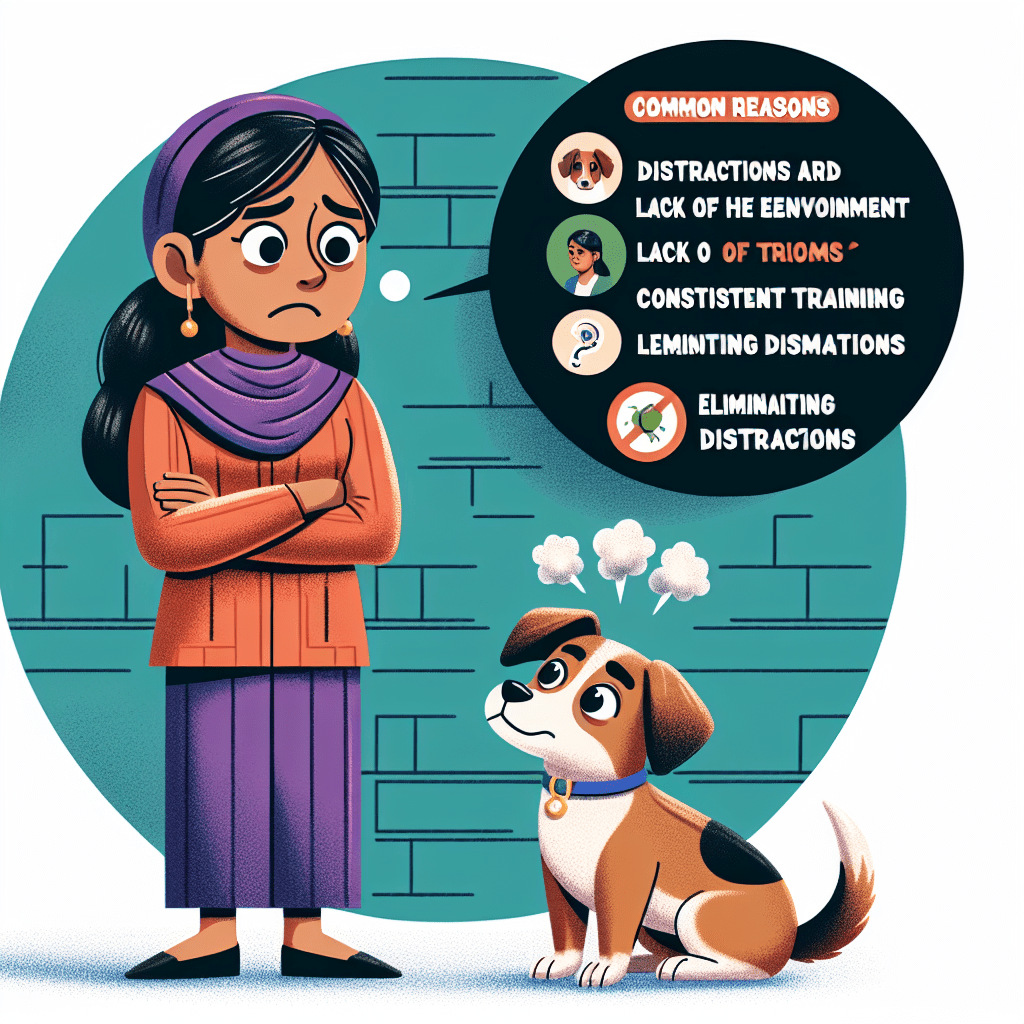

Why Won’t My Dog Listen? Unpacking Common Reasons and Solutions
If you’re a dog lover like me, you’ve probably experienced that moment when your furry friend seems to have selective hearing. One minute, they’re your loyal companion; the next, they’re obliviously sniffing grass or chasing after a squirrel. If you’ve ever found yourself saying, “Why won’t my dog listen?” you’re not alone. The good news is that understanding why our dogs might not respond can help us bridge that communication gap, leading to a better bond and a well-behaved pup. This blog post will dive into the common reasons why dogs don’t listen and provide practical solutions to address these issues.
Dogs see the world differently than humans. Their senses and interpretations shape how they interact with us and their environment. While you may be calling them with an excited voice, to your dog, there may be other more fascinating things at play.
Take a moment to observe your dog when you’re trying to communicate. Speak in clear, consistent tones and pair verbal commands with hand signals. This can significantly aid in their understanding.
A well-trained dog is typically an obedient dog. Yet, many dog parents find themselves frustrated when their pups resist commands.
Establish a consistent training regimen. Enlist the help of a professional trainer or refer to reputable online resources that can guide you through basic and advanced training techniques.
Dogs are highly influenced by their environment. Distractions can lead to them ignoring commands.
Try training in a quiet, controlled environment first. Gradually introduce distractions and increase the difficulty level to help your dog learn to focus amid stimuli.
You can’t expect your furry friend to respond if they aren’t feeling well or are simply too old to be doing the things you expect.
Regular vet check-ups are vital. Be attentive to your dog’s health, and consult your vet regarding any behavioral changes. Older dogs may need patience and extra understanding during training.
Our dogs aren’t humans; thus, their motivations for listening or not can be quite different.
Use high-value treats as rewards and mix them up! Occasionally rotating treats helps keep motivation high. Also, combine rewards with playtime, which many dogs find irresistible.
The relationship between a dog and its human matters immensely. A strong bond will result in improved communication.
Spend quality time with your pup through play and training sessions. Engage in activities they’re excited about, which fosters trust and creates a more receptive environment for commands.
After emphasizing training, we must understand that learning must be a consistent process.
Establish a daily routine for training sessions, feeding, and walks. Make sure everyone in your household uses the same commands and rewards to reinforce good behavior.
Sometimes our best efforts aren’t enough. Seeking assistance from experts can provide a fresh perspective.
Do thorough research and ask for recommendations when looking for a trainer or behaviorist. Don’t hesitate to reach out and utilize their expertise for effective solutions.
In unpacking the reasons why your dog may not listen, it’s important to remember that patience, understanding, and love go a long way. Dogs communicate differently than humans, and recognizing these nuances can foster a strong bond and encourage better obedience. Establishing a consistent routine, exploring different training methods, ensuring their health, and utilizing appropriate incentives will greatly assist in unlocking your pup’s potential.
By taking the time to understand your dog’s behavior and motivations, you’re not just training them; you’re building a relationship founded on trust and compassion. Remember, every dog has the ability to learn and grow, but it requires dedication from both ends.
1. Why does my dog ignore me when we’re outside?
Dogs are often distracted by smells, sights, and sounds outdoors. Train in calm environments first, then gradually introduce distractions to build their focus.
2. How can I tell if my dog is unwell?
Changes in behavior, appetite, or energy levels can indicate health problems. Always consult a vet if you see significant changes.
3. What are some high-value treats?
High-value treats are usually softer, smellier options like small pieces of chicken, cheese, or store-bought training treats that are more appealing than regular kibble.
4. How often should I train my dog?
Short, frequent sessions of about 5-10 minutes, 2-3 times a day, are generally effective for training, especially for puppies.
5. Can I train my dog by myself?
Absolutely! With dedication, resources, and consistency, many dog parents successfully train their dogs. Professional help is available if needed.
6. Is it too late to train my older dog?
It’s never too late! Older dogs can learn new tricks—though they may need more time and patience.
7. How should I handle bad behaviors?
Instead of reacting negatively, redirect your dog’s attention to positive behaviors or commands, rewarding them when they comply.
8. What if my dog reacts aggressively to commands?
Aggressive reactions could stem from fear or anxiety. Consult a professional trainer. Safety is priority number one!
Unlock the Secrets to a Well-Behaved Dog! 🐾 Tired of your pup’s bad habits? Discover how to transform your unruly dog into a loving companion with our FREE Dog Training Mini Course! Learn essential commands, potty training tips, and effective techniques to eliminate unwanted behaviors in just days. Don’t miss out—sign up now and start your journey to a happier, obedient dog! Join Here! (https://bit.ly/3RJak0a)
Instantly Access Your Free Children’s Books Here! (https://payhip.com/BlueCherryStore) – Disclaimer: As an Amazon Associate, I earn from qualifying purchases, I may earn a commission from qualifying purchases as an affiliate. Please note that I only recommend products I believe will provide value to my readers. (M)